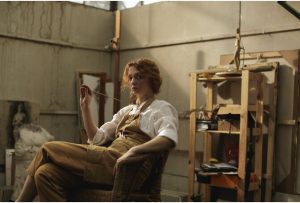
When we think about pest control, images of exterminators in protective gear or chemicals being sprayed may come to mind. However, there’s a lesser-known aspect of pest control that plays a vital role in keeping our homes and businesses pest-free – visual arts. In this article, we’ll explore the intriguing connection between visual arts and pest control, shedding light on how aesthetics and creativity can help address this age-old problem.
-
The Power of Visual Cues
Pests are attracted to environments that offer shelter, food, and water. Visual cues play a significant role in creating an atmosphere that either welcomes or repels pests. Pest control companies often utilize various visual elements to deter unwanted critters:
a. Murals and Outdoor Artwork: In urban settings, large murals and outdoor artworks can disguise cracks, crevices, and other potential pest hiding spots. The vibrant colors and designs not only beautify the surroundings but also make pests think twice about taking up residence.
b. Landscaping and Garden Design: Landscaping and garden aesthetics are integral to keeping pests at bay. Well-designed landscapes can include natural barriers like hedges and ornamental plants that deter pests while enhancing the visual appeal of the property.
c. Lighting: Strategic lighting can be used to deter nocturnal pests. Bright, well-placed lights can make areas less attractive to pests that prefer darkness.
-
Artful Pest Education
Visual arts can also be a powerful educational tool in pest control. Infographics, posters, and brochures featuring creative designs can effectively convey important information about pest prevention and management. These materials can be used in homes, schools, and businesses to raise awareness about common pests, their habits, and the steps people can take to prevent infestations.
-
Pest-Resistant Building Design
Architecture and visual aesthetics are closely linked. Pest-resistant building design incorporates both functionality and visual appeal. Pest control companies often collaborate with architects to create structures that are not only aesthetically pleasing but also resilient to pests.
a. Vent Covers and Screens: Decorative vent covers and screens can serve a dual purpose, allowing airflow while keeping pests out. These additions can be artistically designed to complement the building’s overall look.
b. Sealants and Grout: Creative use of sealants and grout can help seal gaps and cracks in buildings, preventing pests from entering. Tinted sealants can blend seamlessly with the building’s color scheme.
c. Exterior Cladding: Artistic cladding materials can be both visually appealing and pest-resistant, making them a popular choice for architects seeking to combine functionality with aesthetics.
-
Public Awareness Campaigns
Visual arts can be harnessed to raise public awareness about the importance of pest control. Public service announcements, billboards, and social media campaigns often employ eye-catching graphics and designs to convey critical messages about pest prevention, responsible pesticide use, and the benefits of professional pest control services.
You might also want to read about Brushing Up Efficiency: How Warehouse Management Enhances Visual Art Preservation.
Conclusion
The role of visual arts in pest control may not be immediately apparent, but it is undeniably significant. Aesthetic elements, educational materials, and innovative building designs all contribute to creating environments that are both visually pleasing and inhospitable to pests. Pest control companies and artists are finding new ways to collaborate, turning the battle against pests into a creative endeavor that benefits us all. So, the next time you admire a beautiful mural or a well-landscaped garden, remember that you might also be appreciating a masterpiece in pest control.
